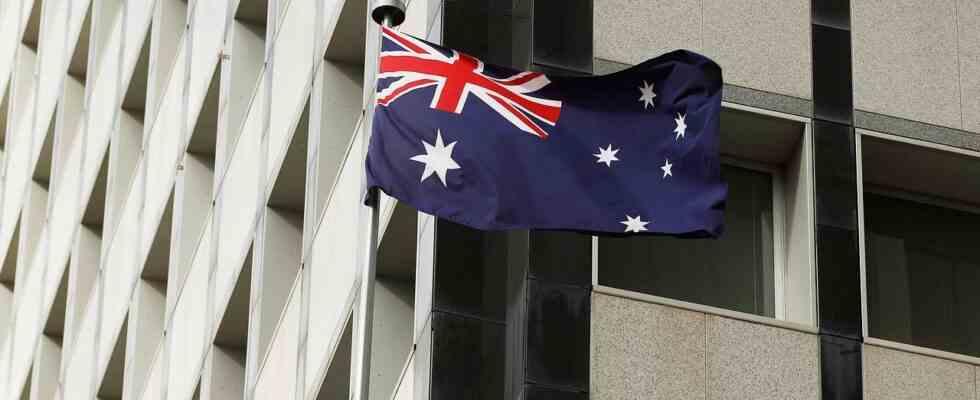Australia has released its ‘crypto mapping’ crypto classification system to guide regulation. cryptocoin.com We have compiled the details of this document published by Australia for you.
Crypto classification paper published
The Australian Treasury released its ‘crypto-matching’ advisory on February 3, which classifies digital currencies and other digital assets into key categories that will guide the government’s forward regulatory approach.
In August 2022, Australia announced its intention to map the various tokens available in the country to help determine how crypto assets and related services can be regulated. The Treasury explored the properties of all digital assets used in the country to categorize them according to asset types, base codes, and other identifying technological and functional characteristics.
The consultation document, released Feb. 3, is the culmination of this process and takes ‘a technical approach to defining the crypto ecosystem and a legal approach to mapping the ecosystem to specific parts of the financial services regulatory framework’.
The Treasury has made it clear that they continue to adhere to the ‘looks like a duck, walks like a duck’ principle for the classification they refer to in all discussions of crypto’s regulation.
The classes are defined as:
Crypto assets are not excluded or ‘carved out’ from Australia’s financial services regulatory framework, they wrote. “Any product (including a crypto asset) will be a financial product if it falls within the scope of functionality or meets one of the specific financial product definitions, regardless of its technological bases.” it was stated. The report divides digital assets into three main categories:
- Crypto networks: Described as ‘a distributed computer system capable of hosting crypto tokens’, they are platforms on which ‘crypto tokens and ‘smart contracts’ are registered.
- Crypto tokens: It is defined as a ‘digital information unit’ that can be ‘exclusively used or controlled’ by a person.
- Smart contracts: It is defined as “computer code published in the database of a crypto network that can be guaranteed to operate in a predefined and deterministic manner without the risk of interference”.

The document defines Australia’s ‘functional environment’ as ‘any ‘facility’ in which a person performs or acquires one or more of the following: (a) makes a financial investment; (b) manage financial risk; and (c) make non-cash payments.
It then implements a token mapping framework based on three key concepts: tokens, token systems and functions that can be ‘used to consider various products in the crypto ecosystem and evaluate them against the functional environment’.
Token systems
Based on this framework, the authors outline two token systems, each containing two types of assets:
Agent token systems: It typically includes a promise or arrangement for functions to be performed by agents or agents. Its contents are the asset services of crypto and the assets of intermediary cryptos.
General token systems: Those that “do not include a promise that an agent or agent will perform a function in the future”, but instead include functions directly provided by a crypto’s network. These also include network tokens and general smart contracts.

The report concludes by asking for feedback from the public, which it will collect by March 3, 2023. The feedback will be used to inform the framework for storing and licensing digital assets, which will be released in mid-2023.
However, the government continues to prefer to fit crypto into the current financial framework. Australian Financial Services Minister Stephen Jones reinforced his previous statements regarding the regulation of digital currencies as financial products in an interview with the Sydney Morning Herald on January 23.
Contact us to be instantly informed about the last minute developments. twitter‘in, Facebookin and InstagramFollow and Telegram And YouTube join our channel!
Risk Disclosure: The articles and articles on Kriptokoin.com do not constitute investment advice. Bitcoin and cryptocurrencies are high-risk assets, and you should do your due diligence and do your own research before investing in these currencies. You can lose some or all of your money by investing in Bitcoin and cryptocurrencies. Remember that your transfers and transactions are at your own risk and any losses that may occur are your responsibility. Cryptokoin.com does not recommend buying or selling any cryptocurrencies or digital assets, nor is Kriptokoin.com an investment advisor. For this reason, Kriptokoin.com and the authors of the articles on the site cannot be held responsible for your investment decisions. Readers should do their own research before taking any action regarding the company, assets or services in this article.
Disclaimer: Advertisements on Kriptokoin.com are carried out through third-party advertising channels. In addition, Kriptokoin.com also includes sponsored articles and press releases on its site. For this reason, advertising links directed from Kriptokoin.com are on the site completely independent of Kriptokoin.com’s approval, and visits and pop-ups directed by advertising links are the responsibility of the user. The advertisements on Kriptokoin.com and the pages directed by the links in the sponsored articles do not bind Kriptokoin.com in any way.
Warning: Citing the news content of Kriptokoin.com and quoting by giving a link is subject to the permission of Kriptokoin.com. No content on the site can be copied, reproduced or published on any platform without permission. Legal action will be taken against those who use the code, design, text, graphics and all other content of Kriptokoin.com in violation of intellectual property law and relevant legislation.
